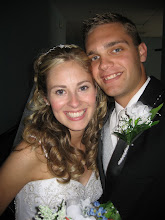My research question is: What types of adaptive and assistive technologies are available in schools to help aid students in need? (schools ranging from elementary through college)
School systems I received information from and took picture at (of their technologies) include Warren Twp., Perry Twp., Franklin Twp., IUPUI Adaptive Education Services (Univ. Library), and Rise Special Services
* Introduction (its features)
Assistive technology is defined as any item, piece of equipment, or system of products that is used to increase, maintain, or improve functional capabilities of individuals with disabilities. Adaptive technology aids users by adapting content or user responses into a medium appropriate for the user. For example, screen readers "adapt" conventional text by converting it into content spoken by a synthetic voice, thereby making standard text accessible to blind students. (www.education-world.com)
* Works Cited
* (10) Assistive/Adaptive Technologies used in Indianapolis schools
* Each page includes: Description of technology, Features, Models Available, Software, or Publisher/Company, Users/Benefits, Issues, and Cost
I chose a blog for this assignment because I wanted to get it out on the Internet, creating a webpage would be too difficult for me right now, and this class is the first time I’ve ever blogged…wanted to try out more of its features.
How does what’s important fit into reading?
~Expansion of what we’ve talked about in class
Anything else to help me? Other technologies you’d like me to add?
Blog URL: http://adaptivetechw412.blogspot.com/
-AAK

